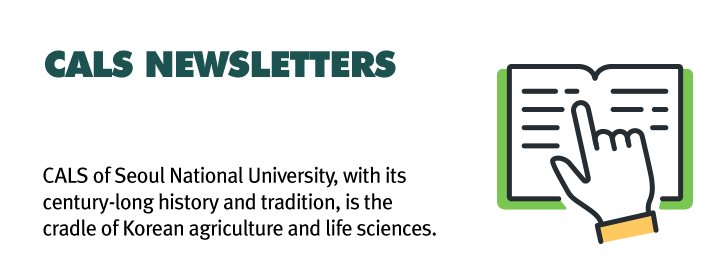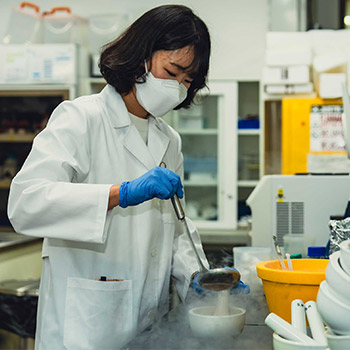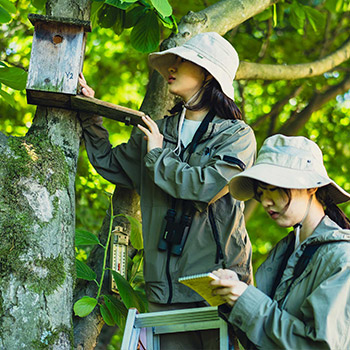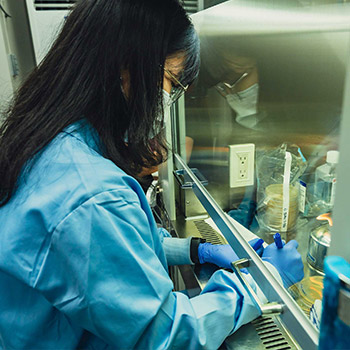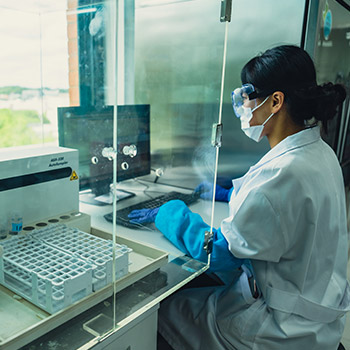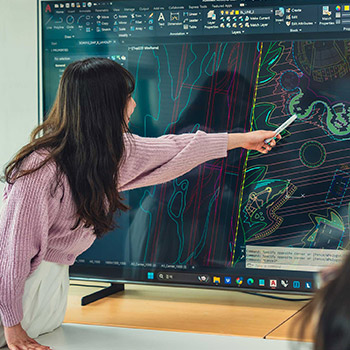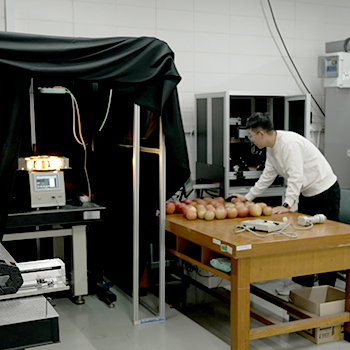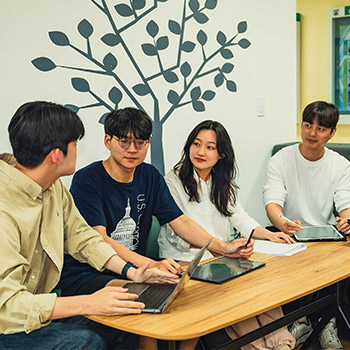Interview with Professor Son Ho-kyung, director of the botanical hospital
If you are a student at Seoul National University's Agricultural College, you may have seen a placard recruiting tree doctors and tree therapy technicians while climbing up 200 buildings. The Seoul National University Botanical Hospital, which organizes this, is an affiliated facility of the Agricultural College established to conduct education and research on the protection and management of useful plants and is located in 203 dong. I met Professor Son Ho-kyung, the director of the botanical hospital, to hear more about the botanical hospital. Professor Son Ho-kyung belongs to the Department of Applied Biology in the Department of Applied Biology, and the graduate school belongs to the Department of Plant Microbiology in the Department of Agricultural and Biotechnology.
Seoul National University Botanical Hospital conducts various education, research, and social contribution activities for the development of the field of plant disease treatment. First of all, research and development in the field of plant disease treatment and on-site problem-solving activities are actively underway. Recently, tasks such as "development of indicators and field technologies of moisture stress evaluation to prevent dry damage to zelkova trees," "discovery and functional analysis of tobacco non-encrypted RNA related to potato virus X infection," and "an investigation of Hallasan fir tree disease." In addition, he added that the school is playing a direct role as an annex to Seoul National University by diagnosing and prescribing pests of landscaping trees on campus and performing surgery to protect some trees.
In addition, in terms of education, since 2000, landscape tree management education has been provided to domestic landscape tree managers every summer and winter for professional and efficient management of landscape trees. In addition, with the implementation of the tree doctor qualification system, the tree doctor and tree treatment technician training course has been operated two to three times a year since 2018, and repair education and workshops are regularly conducted to strengthen the capabilities of tree doctors. Recently, it is also running a youth field trip experience program "In harmony with the trees" for middle school students.
When asked about the need to train tree doctors and tree therapy technicians, Professor Sohn Ho-kyung explained that with the revision of the Tree Protection Act, only tree doctors can diagnose and prescribe landscaping and trees, and only tree therapy technicians can prevent and treat them. To become a tree doctor, you must complete education at a tree doctor training institution. Although it varies slightly from training institution to institution, the basic education time is about 150 hours, and there are about a dozen subjects to be learned, including tree pathology, pest science, physiology, management, non-biological damage, and pesticide science. After completing the training, you must pass the Tree Doctor Qualification Test organized by the Korea Forest Service, and you can take the test only if you have a master's degree or higher in related majors, a certificate holder, or a work experience related to tree treatment. In other words, it is possible to obtain a qualification only when you complete the training at the training institution and meet the conditions for taking the qualification test and pass the final exam. The process of becoming a tree therapy technician is similar to that of a tree doctor, and you must be educated at a training institution and pass the test. However, when taking the qualification test, unlike tree doctors, they are not qualified to take the test, and they must pass their own tests by trained training institutions other than the Forestry Promotion Agency.
Seoul National University Botanical Hospital is also an affiliated organization in the school and performs tasks that private botanical hospitals are not in charge of. This is the role of monitoring and advising the health of landscaping trees in the school through the aforementioned eco-campus project. In particular, it is taking the lead in creating a safe campus by selecting places where potential damage is expected from dangerous trees throughout the school. In addition, since it is a non-profit corporation, it does not conduct private tree damage consulting, but it is partially conducted when it is recognized that consulting on complex tree damage that the public sector cannot solve and the private diagnostic industry.
On the other hand, as the general public's interest in plants has recently increased, the terms "companion plant" and "cooker" (a person who devotes affection to companion plants as a compound word of plant + butler) have also emerged. When asked about the latest research trends in the field of plants, Professor Sohn Ho-kyung explained that agriculture is expanding into the category of education and leisure, and smart agriculture and precision agriculture research fields that combine agriculture with various new technologies are also growing rapidly. In addition, plant health management technologies such as semiconductors, IoT technologies, hyperspectral optics, nanotechnology, robot technology, and artificial intelligence are expected to be rapidly advanced in the future.
Professor Son Ho-kyung also introduced ways to prevent plant diseases. Plant diseases and human diseases are not much different, and similar methods apply to plants, such as genetically resistant to diseases or increasing disease resistance and maintaining a clean living environment through high-quality food, rest, and exercise. It was also explained that healthy plants should be purchased in consideration of the interrelationship between host, pathogen, and environment to prevent the inflow of external pathogens and create an environment to grow healthy. Through this comprehensive plant disease control strategy, plants should be continuously monitored and optimized growth conditions should be created.
Finally, Professor Son Ho-kyung said he hoped that students' awareness and interest in tree doctors would be enhanced. The tree doctor recommended it to students who like fieldwork and travel, and said it is a highly profitable job that does not have to worry about retirement age. In order to qualify for the tree doctor test, you must obtain a state-recognized certificate or a certificate such as a plant protection engineer, a plant protection industry engineer, a landscaping engineer, or a landscape industry engineer in your fourth year of undergraduate studies. Even if you do not have a license, you will be eligible to take the course if you obtain a master's degree in related fields, and related departments include the Department of Plant Production Science, Applied Biochemistry, Landscape Regional Systems Engineering, and Forest Science. In addition, if a member of our university applies for training in a botanical hospital, there will be a half-price reduction in tuition fees, so we hope many interested students will participate.


